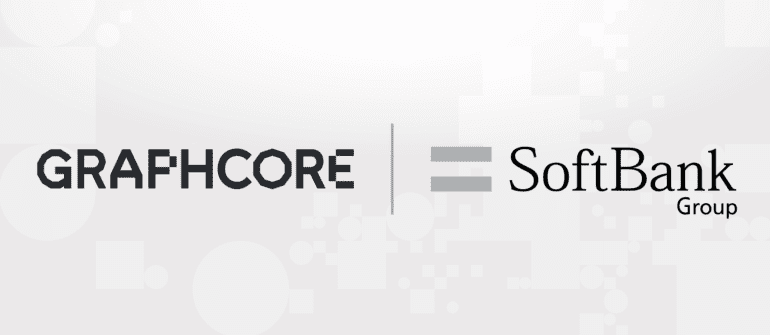- SoftBank has acquired UK-based chipmaker Graphcore to bolster its position in artificial intelligence.
- Graphcore, founded in 2016, specializes in AI-focused technologies and will join SoftBank alongside chip designer Arm.
- The acquisition, valued just above $600 million, emphasizes SoftBank’s strategic pivot towards foundational AI technologies.
- Despite Graphcore’s challenges in commercialization, the move aligns with SoftBank’s vision to lead in AI computing.
- Regulatory approvals and national security clearances have been secured for the acquisition, underscoring its strategic significance.
- Graphcore’s exit from China operations due to US export controls highlights a strategic focus on US and European AI markets.
- SoftBank aims to leverage Graphcore’s technology to compete with industry leaders like Nvidia and AMD in AI chip development.
- The acquisition complements SoftBank’s substantial investment in Arm, positioning it at the forefront of the AI boom.
Main AI News:
SoftBank’s acquisition of UK chipmaker Graphcore represents a pivotal move in its strategic expansion into artificial intelligence (AI). Founded in 2016 by UK semiconductor industry veterans, Graphcore has carved out a niche in AI-focused technologies. Now, joining SoftBank alongside chip designer Arm, Graphcore’s acquisition underscores the Japanese tech giant’s commitment to advancing AI capabilities. Nigel Toon, CEO and co-founder of Graphcore, highlighted the extensive discussions that preceded the acquisition, emphasizing the alignment of their vision with SoftBank’s ambitious AI computing goals.
The acquisition, funded directly by SoftBank Group rather than through its Vision Funds, reflects the strategic importance of Graphcore’s technology. “Graphcore will join SoftBank Group to build the next generation of AI compute,” stated Toon, pointing to the company’s role in realizing a grand vision within the tech industry. Vikas Parekh, a San Francisco-based SoftBank executive who led the investment, underscored the critical role of foundational AI technologies. He anticipates significant long-term profitability as the AI sector evolves, with opportunities expanding across semiconductor and systems development.
Graphcore, often positioned as a rival to Nvidia in high-performance AI chips, specializes in “intelligence processing units” tailored for AI applications’ specialized demands. Despite challenges in commercializing its technology, including modest revenues and substantial losses in recent years, Graphcore’s acquisition by SoftBank marks a strategic consolidation aimed at enhancing its competitive stance. The financial terms of the deal, reportedly just above $600 million, signal a valuation adjustment from previous venture capital rounds.
With support from SoftBank’s vast resources, Graphcore plans to significantly expand its UK workforce while maintaining its headquarters in Bristol. Masayoshi Son, SoftBank’s founder, aims to position the company at the forefront of AI innovation. This strategic direction leverages SoftBank’s substantial investment in Arm, which has seen its value triple since its IPO, positioning it centrally in the AI boom.
The acquisition received regulatory approvals and national security clearances in the UK and US, underscoring its strategic importance. Ahead of the deal, Graphcore exited its China operations due to US export controls on AI chips, redirecting its focus to AI customers in the US and Europe. Nigel Toon highlighted ongoing cooperation possibilities across the broader SoftBank ecosystem, including potential synergies with Arm.
Looking forward, Graphcore and SoftBank are poised to capitalize on AI opportunities, aligning with Masayoshi Son’s broader vision to shape the future of AI through substantial investments and strategic partnerships. The acquisition marks a significant step in SoftBank’s strategy to lead in the AI revolution, complementing its portfolio with cutting-edge technologies that drive innovation across global markets.
Conclusion:
SoftBank’s acquisition of Graphcore represents a strategic consolidation in the AI semiconductor market. By integrating Graphcore’s specialized AI technologies, SoftBank aims to enhance its competitive stance against established players like Nvidia. This move underscores SoftBank’s commitment to driving innovation in AI computing, potentially reshaping the landscape of AI technology and applications globally.

